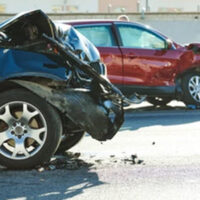The Importance of a Biomechanics Expert

In a personal injury case, all kinds of experts can be used. Many we are very familiar with, such as doctors, or scientists. But what often wins the case is using different kinds of experts and understanding what kind of expert can say what. One expert that isn’t often used—but can be very important—is the biomechanics expert.
How Experts Testify
It is important to understand when an expert can be used. Generally, if an expert has the proper education, experience, and qualifications, the court will allow the expert to testify. The question usually isn’t whether the expert is qualified—it’s whether the expert is qualified to testify in the field that they are testifying.
For example, the world’s greatest surgeon would be legally unqualified to testify about an allergy problem or a skin problem. The world’s greatest airplane mechanic would not be legally capable of testifying about a defective airbag in a car.
Experts in Accidents
In a typical accident, we tend to think of two experts. One is the expert that will testify that the defendant did something wrong. For example, an engineer may testify that car brakes were defectively installed. A civil engineer may testify that a stairwell wasn’t up to code. An accident reconstructionist may testify that an accident happened a certain way.
The second expert is the doctor, who will testify as to the nature, severity and long term prospects and expenses, of any injury that was suffered.
The Biomechanics Expert
But the biomechanics expert connects these two. In other words, the biometrics expert can testify what the impact is on the human body, given a specific kind or force that is placed upon it. To contrast, a doctor can say that you have a lumbar strain. But oftentimes, and depending on the judge, the doctor can’t legally say that if a car hits you from behind at a given speed, that this can cause a lumbar strain. That’s causation—an opinion on how the body reacts to given forces of acceleration or deceleration coming from a given direction.
The biomechanics expert works in tandem with other experts. For example, the biomechanics expert may need the accident reconstructionist’s testimony that the accident probably occurred at a speed of X miles per hour. Given that, the biometrics expert could testify that such an accident could cause X, Y or Z injuries.
A biomechanics expert can dispel common myths that jurors have about accidents—for example, the idea that a slower-speed accident can’t cause an injury. The expert can also explain things that don’t make sense—for example, many jurors don’t understand how things like wrists or elbows are injured in car accidents.
The biomechanics expert is an important piece in “connecting the dots” between an accident and an injury.
Make sure you have the evidence you need to prove your case if it goes to trial. Call the Clinton personal injury attorneys at Fox, Farley, Willis & Burnette, today if you have suffered any type of injury.











